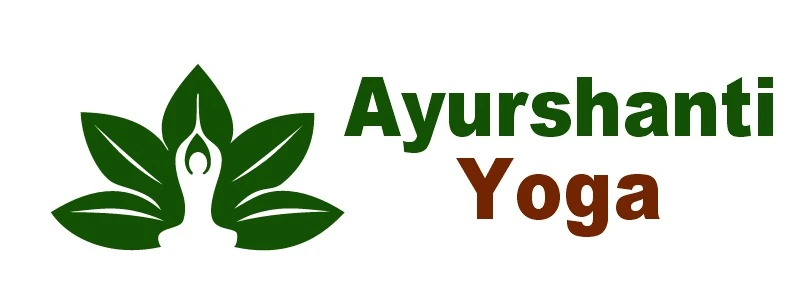Introduction to Ayurveda Panchakarma: The Ancient Healing Science
Ayurveda, often referred to as the “Science of Life,” is one of the world’s oldest holistic healing systems, originating in India over 3,000 years ago. At the heart of this ancient practice lies Panchakarma, a comprehensive detoxification and rejuvenation therapy designed to restore the body’s natural balance. The term “Panchakarma” translates to “five actions” or “five treatments,” each aimed at purifying and revitalizing the body by eliminating toxins and enhancing overall health.
Central to Ayurveda is the concept of doshas—Vata, Pitta, and Kapha—which are the three fundamental energies governing physiological and psychological functions. A balanced state of these doshas is crucial for maintaining health and wellness. Panchakarma plays a pivotal role in achieving this balance through its five primary procedures: Vamana (therapeutic vomiting), Virechana (purgation), Basti (enema), Nasya (nasal administration), and Raktamokshana (bloodletting). Each of these procedures targets specific health concerns and aims to cleanse the body of toxins accumulated due to improper diet, lifestyle, and environmental factors.
Vamana therapy involves the controlled induction of vomiting to expel toxins, particularly from the respiratory and gastrointestinal tract. This treatment is especially beneficial for individuals with Kapha imbalances. Virechana, or purgation, focuses on cleansing the bowels and is effective in addressing Pitta-related disorders. Basti, considered the most effective Panchakarma therapy, involves the administration of medicated enemas to cleanse the colon, thereby balancing Vata dosha. Nasya therapy entails the nasal administration of herbal oils to clear the nasal passages and improve respiratory health. Lastly, Raktamokshana, or bloodletting, is employed to detoxify the blood and is often recommended for skin disorders and other blood-related ailments.
The significance of detoxification and rejuvenation in Ayurveda cannot be overstated. Panchakarma therapies not only eliminate toxins but also improve digestion, boost immunity, and enhance mental clarity. Numerous testimonials and case studies highlight the transformative effects of Panchakarma, with individuals reporting significant improvements in their physical and mental well-being. Through a personalized approach, Ayurveda Panchakarma offers a pathway to holistic health, emphasizing the importance of balance and harmony in achieving optimal wellness.
The Benefits of Yoga Retreats: Finding Balance and Inner Peace
Yoga retreats in India offer a unique opportunity to immerse oneself in practices that promote physical, mental, and spiritual well-being. These retreats typically offer various styles of yoga, each with its distinct benefits. Hatha yoga, known for its gentle and slow-paced postures, is ideal for beginners looking to improve flexibility and strength. Vinyasa yoga, characterized by its fluid movements and breath synchronization, helps in enhancing cardiovascular health and building muscle endurance. Ashtanga yoga, a more rigorous practice, focuses on a set sequence of poses to develop stamina, flexibility, and mental clarity. Kundalini yoga, often referred to as the ‘yoga of awareness,’ aims to awaken latent energy through a combination of postures, breathwork, and chanting.
The serene settings of these retreats, often nestled in the lap of nature, provide a perfect backdrop for relaxation and self-discovery. Locations range from the tranquil beaches of Goa to the lush green mountains of the Himalayas, offering a peaceful escape from the hustle and bustle of daily life. The natural environment not only enhances the overall experience but also aids in deepening one’s connection with nature and oneself.
A typical day at a yoga retreat is carefully structured to promote holistic well-being. The day usually begins with an early morning yoga session, followed by meditation and pranayama (breathing exercises). These practices help in centering the mind, improving focus, and preparing the body for the day ahead. The afternoons may include workshops on mindfulness and self-awareness, while the evenings often feature restorative yoga sessions and guided meditations to unwind and reflect on the day’s experiences.
Combining yoga with Ayurveda treatments can amplify the benefits, creating a comprehensive approach to health and harmony. Ayurveda, a traditional Indian system of medicine, offers personalized treatments and therapies to balance the body’s doshas (energies) and promote overall wellness. Many yoga retreats incorporate Ayurveda consultations, detox programs, and therapeutic massages to complement the yoga practices, ensuring a well-rounded and nourishing experience.
Personal stories and testimonials from retreat participants often highlight the transformative impact of these retreats. Many share how the holistic approach helped them achieve a sense of balance, inner peace, and a renewed perspective on life. These retreats serve as a sanctuary for individuals seeking to rejuvenate their mind, body, and spirit, making them an invaluable experience for anyone on the path to wellness.
